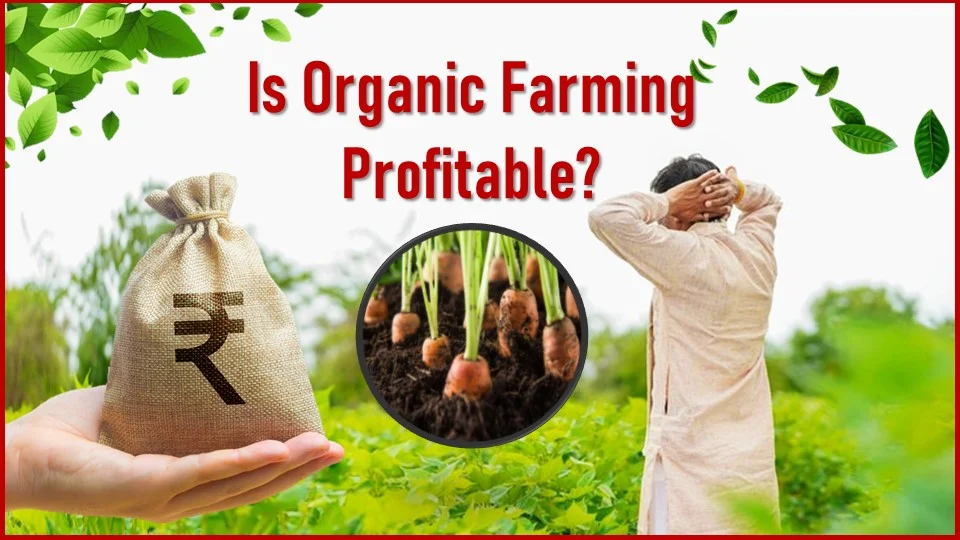
Organic farming profitability is a key consideration for farmers transitioning from conventional agriculture to more sustainable practices. This shift involves adopting organic farming methods that exclude synthetic fertilizers, pesticides, and genetically modified organisms (GMOs), focusing instead on natural processes and biodiversity. While the initial costs of transitioning to organic farming can be high, the long-term benefits and profitability of organic farming make it an attractive option for many.

One of the primary factors contributing to organic farming profitability is the premium price that organic products command in the market. Consumers are increasingly willing to pay more for food that is certified organic, free from synthetic chemicals, and perceived as healthier and more environmentally friendly. This price premium can significantly enhance organic farming profitability, providing farmers with higher revenue per unit of produce compared to conventional farming.
Another aspect of organic farming profitability is the reduction in input costs over time. While the initial transition to organic farming may require investments in new equipment, organic seeds, and organic certification, the ongoing costs can be lower. Organic farming relies on natural inputs such as compost, green manure, and biological pest control, which can be produced on-farm or sourced at lower costs compared to synthetic fertilizers and pesticides. Additionally, organic farming practices improve soil health and fertility, reducing the need for expensive soil amendments and boosting organic farming profitability in the long run.
Diversification of crops and livestock is also a crucial factor in organic farming profitability. Organic farms often grow a variety of crops and raise different types of livestock, creating multiple streams of income. This diversification not only spreads risk but also enhances soil health and reduces pest and disease pressure through crop rotation and polyculture practices. By having a diverse range of products, organic farmers can tap into various markets, increasing their chances of higher sales and greater organic farming profitability.
Moreover, organic farming profitability is influenced by the increasing demand for organic products. The global organic food market has been growing steadily, driven by consumer awareness of health and environmental issues. This rising demand ensures a steady market for organic produce, allowing farmers to plan and invest confidently. As the market for organic products expands, organic farming profitability is likely to continue improving, attracting more farmers to adopt organic practices.
Government support and subsidies also play a significant role in enhancing organic farming profitability. Many countries offer financial incentives, grants, and technical assistance to farmers transitioning to organic agriculture. These supports can offset the initial costs of conversion and provide ongoing assistance to maintain organic certification and practices. By taking advantage of these programs, farmers can improve their organic farming profitability and ensure their operations are sustainable in the long term.
Education and training are essential for maximizing organic farming profitability. Farmers need to understand the principles and practices of organic farming to optimize their operations. This includes knowledge of soil management, pest and disease control, crop rotation, and organic certification requirements. Access to resources such as workshops, online courses, and agricultural extension services can help farmers improve their skills and increase their organic farming profitability. Continuous learning and adaptation are key to staying competitive in the organic market and maintaining high levels of organic farming profitability.
Additionally, organic farming profitability is enhanced by marketing strategies that emphasize the unique qualities of organic produce. Direct-to-consumer sales through farmers’ markets, community-supported agriculture (CSA) programs, and online platforms can yield higher profits compared to traditional wholesale channels. By building strong relationships with consumers and educating them about the benefits of organic products, farmers can create loyal customer bases and enhance their organic farming profitability. Effective branding and marketing can distinguish organic products from conventional ones, allowing farmers to capitalize on the growing demand for organic foods.









